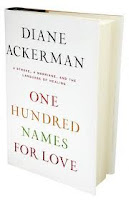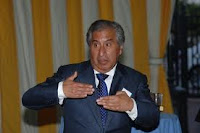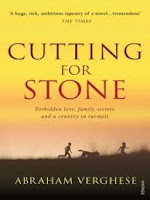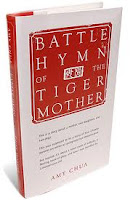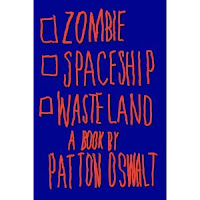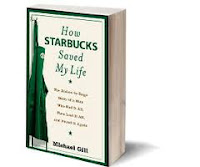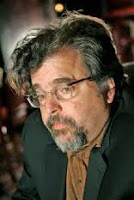
Still weeks behind on posting book reviews and recaps of author visits, it seems only fitting to put together the two grand finales that have recently marked my literary and personal life: Richard Russo's visit to Butler last April, and my youngest child's bar mitzvah, last weekend.
Each finale was comprised of several smaller events, and each of these were peppered with so many heart-touching moments, that a quick recap wouldn't do either justice.
Like any Jewish mother I started planning my son's bar mitzvah from the moment of his bris. Also, this was the last of my children to come of age. We were lucky enough to have family and friends come in for our celebration from all over the country. All these notions lent the bar mitzvah the feel of a grand finale.
Richard Russo was the last and biggest name on this year's Butler's Visiting Writers' Series's roster. Along with the prerequisite reading, Russo agreed to be the judge for a "First Chapter" writing competition staged by the editors at Booth, the literary journal at Butler (a genius idea, may I add). The afternoon before his reading, Russo gathered with us to go over the five finalists.
A little OCD about being late, I was the first one in the room. When the door opened, it was Russo! He entered, extended his hand, and with eyes smiling said, "Hi, call me Rick." I was floating. I think it's true that it can be a mistake to judge by first impressions, but sometimes first impressions say it all: Russo, a highly accomplished writer of considerable fame, came to Butler with a gracious, open heart.
What happened next was the stuff of dreams. No really, even I couldn't have dreamed this. Three of the editors of Booth, me, my classmate Maggie, and Russo, all sitting around a boardroom table. I have to admit I was pretty nervous; I had no idea how this meeting would play out. I figured Russo would announce the winning chapter, and then give us a brief rundown of the faults of the other four finalists. What actually happened was nothing like that. Russo introduced each of the final entries, one by one, and, while addressing us by name, asked each of us for our opinions. What ensued was a discussion on the merits and pitfalls of each piece. When we had all weighed in -- and, jeez, how intimidating is that? -- he added his own final thoughts. The meeting turned out to be a master class in novel writing, as he pointed us towards the hallmarks of what makes a winning first chapter.
One chapter, although by far the most polished and professional, lacked a sense of building drama; each of its scenes had the same weight, which led Russo to believe that not all of its aspects were fully imagined. He questioned whether the chapter's crystalline sentences were enough to sustain the novel, saying that they should serve the momentum of the story.
When evaluating another chapter he noted the lack of character development, saying that by the end of the first chapter the reader needed to know more about the protagonist.
The chapter written in epistolary style was a favorite among us, but Russo pointed out that although this unique style make a splash, he was doubtful it could sustain a novel. Russo's point was that although this style lends itself to rapid pacing, it doesn't allow the author to slow scenes down, or to immerse in the physical world of its characters.
Analyzing another chapter, he remarked that the author broke from scene before the action of the scene ended, and went into narration. It's important for an author to know, Russo said, what s(he) wants a scene to accomplish. Scene and narration ground a story over time, and the author of this chapter showed he wasn't comfortable writing either.
Russo then revealed the winning chapter, noting that although it was not the most polished entry, it wowed him with its strong characters, humor and wild imagination. During our discussion of this work he left us with these literary words of wisdom: an easy editing fix consists of marking stuff out with a pencil; what's more worrisome are gaps.
And with that, and a recommendation to read Russo's epic novel "Empire Falls" and his short story collection "The Whore's Child," I'll sign off. Stay tuned for part two of Russo's visit, and more on the epic Lerner bar mitzvah.

